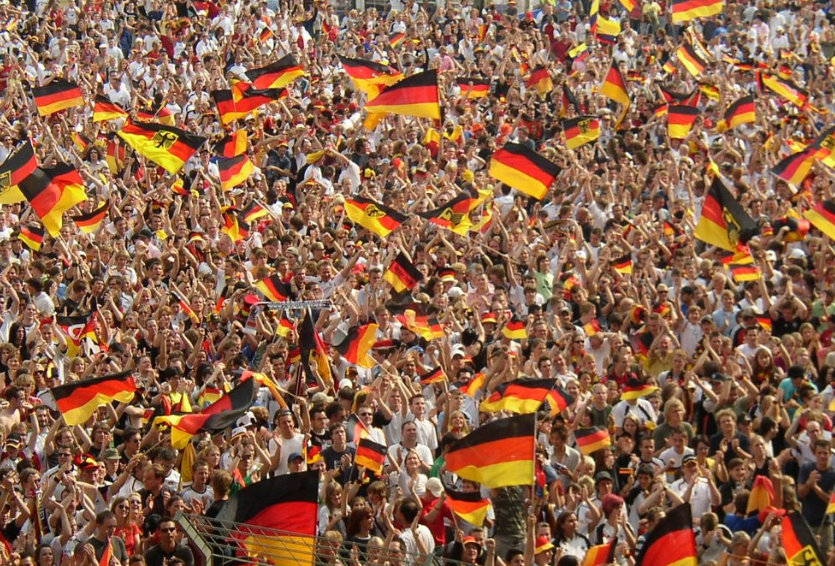Do you know about Albania National Festival? Albania, a country known for its rich cultural heritage and vibrant traditions, celebrates numerous national festivals throughout the year. These festivals provide a platform to showcase the country’s folklore, traditions, and artistic expressions. One such significant event is the Gjirokastër National Folklore Festival. In this article, we will delve into the details of this captivating festival, exploring its history, cultural significance, festivities, and impact on the local community and tourism.
The Importance of National Festivals in Albania
National festivals hold immense significance in Albania, serving as a platform to celebrate the country’s cultural wealth, strengthen social bonds, and preserve traditions for future generations. These festivals provide an opportunity for communities to come together, showcase their talents, and reinforce a sense of national identity.
Gjirokastër National Folklore Festival: An Overview of Albania National Festival
History and Significance
The Gjirokastër National Folklore Festival is a prestigious event held in the historic city of Gjirokastër, a UNESCO World Heritage Site in southern Albania. This festival has a long and cherished history, dating back to 1968 when it was first organized. It aims to promote Albanian folklore, music, and dance while preserving the cultural heritage of the region.
Location and Duration
The festival takes place in the enchanting city of Gjirokastër, renowned for its Ottoman-era architecture and cobblestone streets. Nestled amidst the picturesque landscapes of southern Albania, this location adds to the festival’s charm. The Gjirokastër National Folklore Festival usually spans several days, attracting participants and visitors from across the country and beyond.
Traditional Performances
During the festival, the city of Gjirokastër comes alive with vibrant traditional performances. Folk music, dance, and theatrical displays are showcased on open-air stages, captivating audiences with their authenticity and energy. Skilled performers adorned in colorful traditional attire mesmerize spectators with their graceful movements, accompanied by the rhythmic melodies of traditional instruments.
Cultural Significance of the Albania National Festival
Preservation of Albanian Folklore
The Gjirokastër National Folklore Festival plays a crucial role in preserving Albania’s rich folklore. Through captivating performances and displays, the festival showcases traditional songs, dances, costumes, and customs that have been passed down through generations. By keeping these traditions alive, the festival ensures that the cultural heritage of Albania remains vibrant and cherished.
Promotion of Cultural Identity
The festival serves as a powerful tool for promoting the cultural identity of Albania. It celebrates the unique customs and traditions specific to different regions of the country, highlighting the diversity within Albanian culture. The performances not only entertain but also educate visitors about the roots of Albanian traditions, fostering a sense of pride and connection to their heritage.
Festivities and Activities
The Gjirokastër National Folklore Festival offers a wide range of festivities and activities that engage both locals and tourists. These events create an immersive experience and provide a deeper understanding of Albanian culture.
Traditional Music and Dance
Music and dance lie at the heart of the festival. Various folk ensembles, both professional and amateur, participate in the festival, captivating audiences with their synchronized movements and energetic performances. Visitors have the opportunity to witness the beauty of traditional Albanian dances, such as the “valle” or circle dance, which symbolizes unity and joy.
Handicraft Exhibitions
The festival also showcases the artistic skills of Albanian craftsmen. Local artisans display their exquisite craftsmanship through exhibitions where traditional handicrafts, including intricate embroidery, woodcarvings, and silverwork, are exhibited and available for purchase. These exhibitions provide a glimpse into the traditional craftsmanship that has been an integral part of Albanian culture for centuries.
Local Cuisine
No festival is complete without indulging in the flavors of traditional cuisine. The Gjirokastër National Folklore Festival offers a tantalizing array of local dishes, allowing visitors to savor the authentic tastes of Albania. From hearty stews and grilled meats to freshly baked bread and delicious desserts, the festival’s culinary offerings provide a delightful gastronomic experience.
Tourism and Economic Impact of Albania National Festival
The Gjirokastër National Folklore Festival attracts a significant number of tourists from both within Albania and abroad. The festival’s unique blend of cultural heritage, scenic surroundings, and vibrant performances entices visitors to explore the enchanting city of Gjirokastër and its surrounding areas. This influx of tourists contributes to the local economy by generating revenue for hotels, restaurants, and businesses in the region.
Impact on Local Communities
The festival holds great significance for the local communities of Gjirokastër and the surrounding areas. It not only provides a platform for local artists and performers to showcase their talents but also boosts community pride and engagement. The festival’s success relies heavily on the involvement of local residents, who actively participate in organizing and volunteering during the event. Additionally, the festival creates employment opportunities and promotes cultural exchange, fostering a sense of unity and solidarity among the locals.
Similar Festivals in Albania
While the Gjirokastër National Folklore Festival is undoubtedly one of Albania’s most prominent cultural events, the country is home to several other captivating festivals. These include the Kruja National Folklore Festival, the Tirana International Film Festival, the Apollonia Festival of Arts, and the Berat Summer Festival, among others. Each festival showcases different aspects of Albanian culture and contributes to the country’s cultural tapestry.
Conclusion
The Gjirokastër National Folklore Festival is a celebration of Albania’s cultural heritage, bringing together music, dance, crafts, and cuisine in a vibrant display of tradition and artistic expression. It serves as a testament to the country’s rich history and diverse cultural identity.
FAQs
- When does the Gjirokastër National Folklore Festival take place?
The festival usually takes place in the summer months, with specific dates varying each year. It is recommended to check the official website or local tourism resources for the updated schedule.
- How long does the festival last?
The festival typically spans several days, allowing ample time for visitors to enjoy the various performances and activities.
- Are there any admission fees for attending the festival?
While some performances and exhibitions may have nominal fees, many parts of the festival, including outdoor performances, are often free for spectators to enjoy.
- Can visitors participate in the traditional dances and activities?
There may be opportunities for visitors to join in certain dances or participate in workshops to learn traditional crafts. It is advisable to inquire about specific participation options during the festival.
- Is the festival suitable for families with children?
Yes, the festival offers a family-friendly environment, and children can enjoy the colorful performances and cultural activities tailored for all age groups.
References
- “Gjirokastër National Folklore Festival.” Visit Albania. Retrieved from https://www.visit-ks.com/en/gjirokaster-national-folklore-festival
- “Gjirokastër: The Stone City.” Albanian Tourism. Retrieved from https://albaniantourism.com/destinations/gjirokaster
- “Albanian Traditional Dance and Music.” Visit Albania. Retrieved from https://www.visit-ks.com/en/folklore

